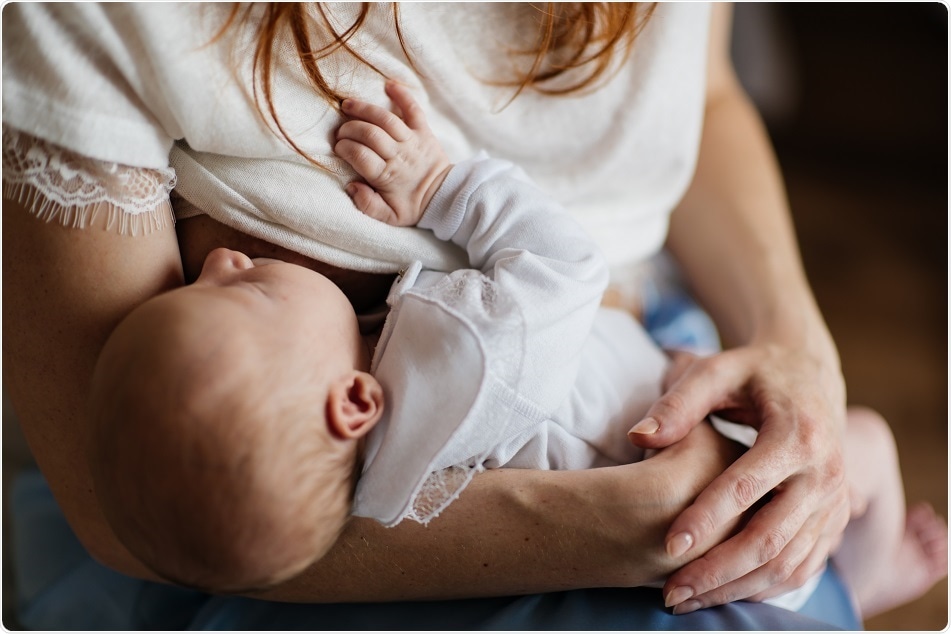Nov 16 2017
A new study, published in the Journal of the American Medical Association (JAMA) Pediatrics, indicates that the babies whose mothers were offered support to breastfeed completely for a prolonged period from birth have a 54% lesser eczema risk at the age of 16.

Credit: Lumen Photos / Shutterstock.com
The study, led by researchers from the University of Bristol, McGill University, Harvard University, and King's College London, investigated more than 13,000 Belarussian teenagers involved in the PROmotion of Breastfeeding Intervention Trial (PROBIT) and identified a 54% decrease in eczema cases among teenagers whose mothers were offered support to breastfeed exclusively.
Eczema is a condition that makes the skin red, sore, dry, itchy, and cracked. Approximately, one in ten adults and one in five children in the developed countries were affected by eczema.
Dr Carsten Flohr, lead author of the study stated: "The WHO recommends between four and six months of exclusive breastfeeding to aid prevention of allergy and associated illnesses. Our findings add further weight to the importance of campaigns like the Baby-Friendly Hospital Initiative (BFHI), which is tackling low rates of breastfeeding globally."
A total of 17,046 mothers and their new-born babies were involved in the PROBIT study between June 1996 and December 1997. Half of the paediatric clinics and maternity hospitals involved in the study offered extra support modelled on the suggestions of the United Nations Children's Fund's BFHI and WHO, while the other half carried on their regular practices.
The UK has one of the lowest breast feeding rates in the world. Only 34% (one in three) of the babies born in the UK were offered breast milk, compared with 71% in Norway and 49% in US. Only 1% of the UK-born babies are completely breastfed to six months.
There was no reduction in asthma risk with 1.5% of the intervention group (108/7064) reporting asthma symptoms compared with 1.7% (110/6493) in the control group, while the study indicated that the breastfeeding promotion intervention offered protection against eczema.